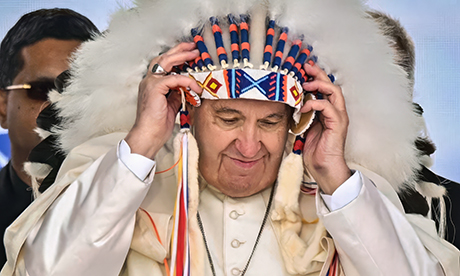The Synod on Synodality is now considering what is shaping up to be among its most contentious points: decentralising and regionalising church decision-making structures.
One suggested option is to establish continental advisory and decision-making bodies with their own rules alongside or in addition to the existing national bishops’ conferences.
This authority-sharing might even involve deciding on issues such as priestly celibacy.
Paolo Ruffini, the Vatican’s head of communications, outlined the ongoing discussions.
Key topics include the relationship between local churches, fostering communion within and between bishops’ conferences, and exploring the possibility of granting bishops’ conferences greater doctrinal authority and local authority over practice.
However, a senior member of the Synod warned, “A fragmented faith also means a fragmented church!”
Call for concrete change
Cardinal Jean-Claude Hollerich, the synod’s content coordinator, emphasised the importance of sharing the experience of “synodality” with all church members.
“If we keep this treasure only for ourselves, we transform it into a privilege rather than a service to the whole church” he said on 15 October as discussions on the third and final part of the working document began.
Cardinal Hollerich urged participants to propose concrete changes to the Church’s institutions, asking –
“How do we need to rethink our institutions? Which institutional and organisational forms need to be changed and how?”
He highlighted the need to consider different local and cultural conditions while maintaining the unity of the worldwide Catholic Church.
A global perspective with local roots
The debate on decentralisation has highlighted the importance of balancing global unity with local diversity.
Benedictine Mother Maria Ignazia Angelini reminded members that faith is always practised within specific cultural contexts.
“If the ‘place’ of the Church is always a concrete space-time of gathering, the journey of the Gospel in the world goes from threshold to threshold: it shuns being static, but also any ‘holy alliance’ with the cultural contexts of the age” she said. “It inhabits them and is led by its life principle — the Spirit of the Lord — to transcend them.”
Limit the scope of local and cultural universal faith
Despite the push for inclusivity, some church leaders have expressed concerns over the potential implications of decentralisation.
Australian Archbishop Anthony Fisher OP voiced his apprehension, warning against the idea of “reinventing” the Catholic faith.
“We cannot ‘reinvent the Catholic faith’ or ‘teach a different Catholicism in different countries’” he said this week in an interview with conservative-leaning EWTN News Nightly.
The Archbishop acknowledged that our understanding of the deposit of faith has developed and will continue to develop but told the programme that he is “very concerned” that Catholics “hold on to the deposit of faith, the apostolic tradition”.
Fisher wants limits on the scope of the ‘local and cultural’ elements in a universal Catholic Church.
Fisher took over from Cardinal George Pell as the archbishop of the Archdiocese of Sydney, NSW and was recently overlooked in being elevated to the position of Cardinal.
Sources
Additional readingNews category: World.




